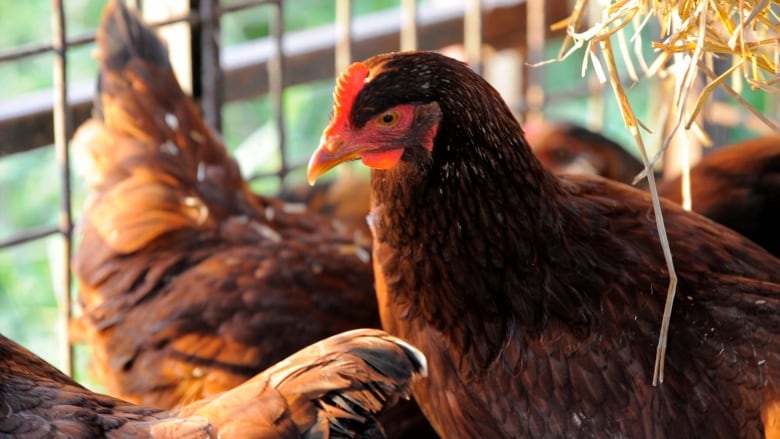First case of avian flu discovered in Manitoba commercial poultry flock

A farm in RM of Whitemouth placed under quarantine while CFIA tries to control movement of birds in the area
The Canadian Food Inspection Agency has confirmed Manitoba’s first case of avian influenza in a commercial poultry flock, and third case overall.
The federal agency detected the first case of highly pathogenic avian influenza strain H5N1 at a farm in the rural municipality of Whitemouth, east of Winnipeg, on Saturday, the province said in a news release the next day.
“Poultry farmers should follow strict biosecurity protocols and take precautions with farm visitors, and continue monitoring information provided by the Office of the Chief Veterinarian“The premises have been placed under quarantine while the CFIA investigates. The agency will also be establishing movement control measures on other farms within that area, according to the latest update on avian flu in the province.
Avian flu “is spreading in wild bird populations across the globe and presents a significant national concern as birds migrate to Canada,” CFIA said in a provincial update on its website.
On Wednesday, the province said samples from snow geese and a bald eagle were tested for the virus and came back positive.
The samples from the snow geese were collected in southwestern Manitoba, and the sample from the bald eagle was collected near Dauphin, Manitoba Natural Resources and Northern Development said in a news release at the time.
The H5N1 virus has been detected in several provinces, including Alberta, Ontario, Newfoundland and Labrador, and Nova Scotia in recent months.
The virus has also been detected south of the border in North Dakota and Minnesota, along the route that spring migratory birds travel when returning to Manitoba, the province of Manitoba says.
Province recommends caution
While the risk of transmission of avian influenza to humans is low — there are no known cases of transmission in North America — people should not touch dead birds or other wildlife with their bare hands.
The province recommends protective eyewear, masks and gloves when handling wildlife, and says to dispose of a dead bird, it should be placed in a plastic bag.
The province also asks citizens to contact its toll-free tip line at 1-800-782-0076 if they find any of the following:
- Six or more dead waterfowl, like ducks or geese.
- Any number of dead raptors or avian scavengers, like ravens or crows.
- Large groups of dead birds.
Small flock owners in Manitoba should take precautions, as small flocks are at high risk for infection. Because they often have a free range or outdoor pens, it is likely that small flocks could come in contact with wild birds carrying the virus.
If at all possible, Manitoba Agriculture recommends that small flock owners keep their birds indoors during the high-risk period of spring migration.
Poultry farmers should follow strict biosecurity protocols and take precautions with farm visitors, and continue monitoring information provided by the Office of the Chief Veterinarian, the province says.











